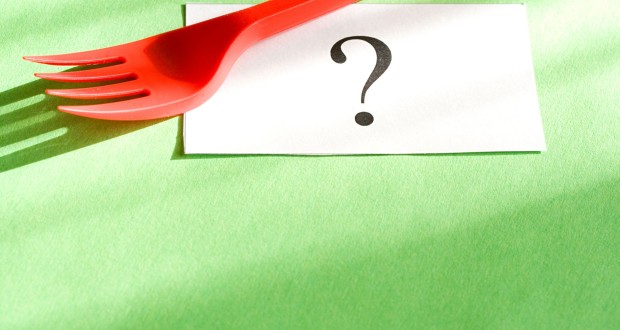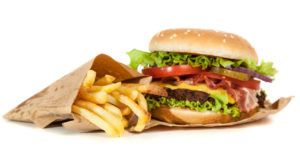It’s a common complaint, especially among those struggling to shed extra weight; you always seem to be hungry, even after polishing off a hefty meal. These hunger pangs are the death of many diets, and can be as baffling as they are frustrating. Though it may seem as if there is no answer for your unhealthy cravings, solving your dietary woes might be easier than you think. Like so many other aspects of our health, our appetites are often dictated by our own lifestyle decisions. Below are some possible explanations as to why all those big meals don’t seem to amount to all that much.
Lack of Water/Dehydration – You might think this first item is a mistake of some sort. After all, how could your water intake have anything to do with your unrelenting appetite? The answer is that we often mistake urges for water as calls for food. Thus, when our bodies begin to run dry, we can easily wind up eating snacks as a response.
Inadequate Breakfast – The hunger problems you experience throughout the day might originate at breakfast time. A breakfast meal that is too small in size can lead to spikes in glucose (blood sugar) levels later on, effectively causing a simultaneous spike in appetite.
The Side Effects of Soda – It’s widely known that soda has little in the way of nutritional value, and can fuel unwanted weight gains if consumed frequently. In addition to its obvious health drawbacks, soda can also be blamed for your persistent food cravings. Soda is made with high fructose corn syrup, an additive notorious for its negative impact on the body. This common sugar substitute disrupts the brain’s ability to determine when the body is full; consequentially, the brain will keep giving the “green light” for more food.
The Side Effects of Alcohol – As with soda, the consequences of consuming alcohol are widely known (then again, the after effects of knocking back a few drinks also functions as alcohol’s main selling point). And just like soda, alcoholic beverages can cause you to overeat. A study from Canada’s Laval University found that alcohol consumption caused subjects to eat more of their lunchtime entrées.
Lack of Sleep – In addition to not drinking enough water, many people also fail to meet the guidelines for nightly sleep (7 to 9 hours, per the Centers for Disease Control and Prevention). Surprisingly enough, poor sleeping habits can lead to poor dietary choices. The University of Chicago examined this very issue, studying two sets of subjects – one group which averaged 5.5 hours of nightly slumber, while the other received 8.5 hours of shuteye. The researchers found that the former group (i.e. those that skimped on sleep) consumed an extra 221 daily calories from snack food.
This connection isn’t some kind of medical quirk. When we fail to get enough sleep, our bodies respond by decreasing their production of the hormone leptin. Leptin alerts your brain when your energy reserves have reached a sufficient level, effectively shutting off your appetite. At the same time, insufficient sleep also causes the body to up its levels of ghrelin, a chemical known as the “hunger hormone.” Needless to say, a stronger ghrelin presence inside the body will likely spark food cravings.
Too Much TV – It’s no secret that people like television; the average American spends just under five hours per day watching various TV programs. Many people compound their bad TV-viewing habits with unhealthy food choices. In fact, you probably don’t have to think that long to recall the last time you ate less-than-healthy food while channel surfing. Research seems to support this connection; the US Department of Agriculture reports that people who watch in excess of 2 hours of television each day are more likely to be lugging around extra pounds. By knocking out one bad habit (excessive TV watching), you might find it easier to kick the other (overeating).
Work-related Stress – You don’t need me to tell you that work can be rough; the American Psychological Association reports that three-fourths of Americans find work to be a major source of stress in their lives. All of this workplace angst can easily seep into the dietary habits of workers; a study conducted by the American Journal of Clinical Nutrition linked work-induced stress to bouts of emotional eating.
A Protein-Deficient Diet – Protein doesn’t just help the body build muscle mass; this nutrient also persuades your stomach and brain to put down the fork and quit eating. Like the other recommendations on this list, this suggestion is supported by research. One study noted that its subjects were much more prone to indulging in snacks if protein accounted for less than 15 percent of their diet.
The Impact of Salt and Sugar – The supermarket is chocked full of processed foods, or foods that have been altered from their original state to boost their taste and shelf life. A number of these items are loaded with either salt or sugar. Once inside the body, both of these additives can cause the consumer to crave the other; eating a sweet dessert, for instance, can lead to urges to eat salt-covered pretzels or chips. In order to tame these cravings, try reducing your intake of both salty and sugary goods. This will require taking a hard look at nutrition labels; food producers often cram sugar into foods usually not considered sugary, such as pasta sauces and salad dressings (this tip also applies to salt).
 Natural Knowledge 24/7 Educate yourself with nutrition, health and fitness knowledge.
Natural Knowledge 24/7 Educate yourself with nutrition, health and fitness knowledge.






